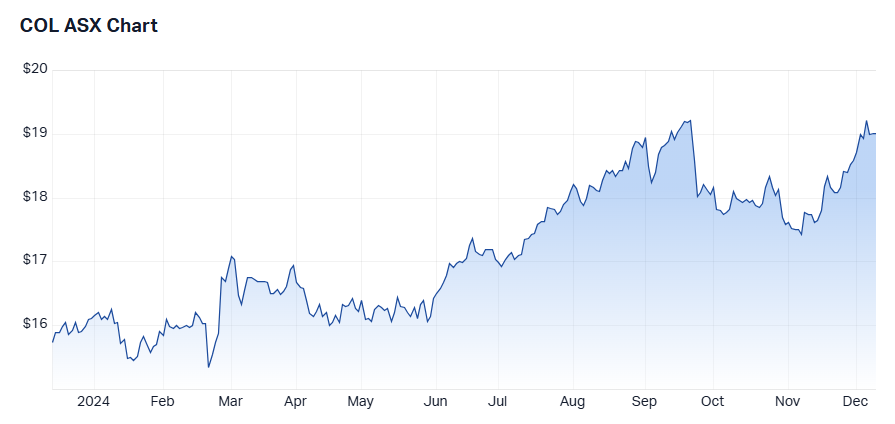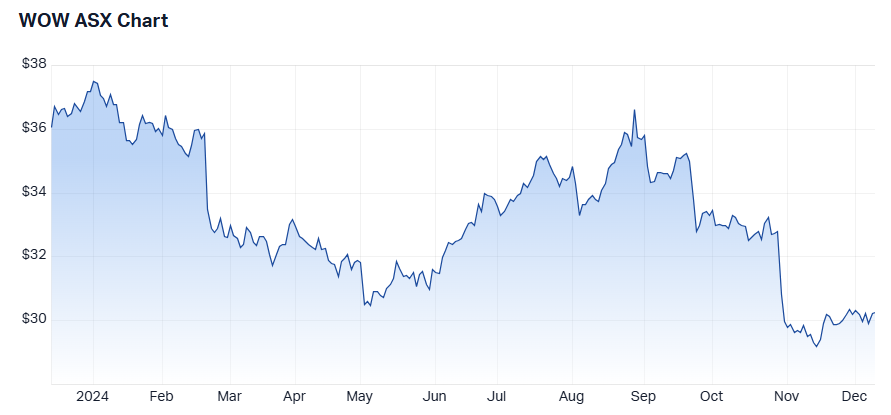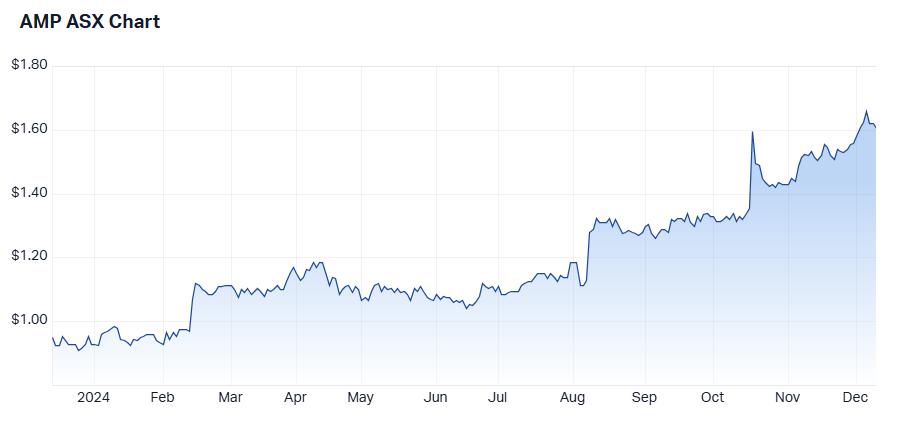Merlon is holding these 2 stocks together for the first time in 14 years—why now?
It’s been an extraordinary year for the likes of Coles (ASX: COL) and Woolworths (ASX: WOW). Prices have hardly been ‘down, down’ for either the big red finger or the Fresh Food People, and that’s been good for business but less so for the average consumer.
The supermarket duopoly has continued to offer bumper returns, even noting a range of challenges, such as increased theft, but also faced into a backlash for perceived price gouging and are currently facing court cases with the ACCC.
Noting that, are their fortunes about to change?
It certainly begs the question; can they keep up the profits and would it ever be worth holding more than one of them?
Merlon Capital Partners' Julian McCormack is not just bullish, he thinks they are both presenting a value opportunity. In fact, “this is the only time in 14 years we have owned both Coles and Woolworths.”
On the flip side, he believes investors are overestimating the outlook for the Big Four banks, after all, these are at “their highest valuations of all time.” Just don’t assume McCormack is flat on all financials – after all, one of his highest conviction positions is likely to take you by surprise given the challenges it has faced in recent years.
In this Rapid Fire interview, McCormack shares why Merlon Capital is holding both big supermarkets, the areas he fears investors are overestimating and his unexpected high conviction pick. For fun, he also tells us which stock he’d buy friends and family for Christmas.

With markets hitting record highs, has it been harder to find undervalued gems or easier?
Easier over the last 5 years – our performance shows this.
It’s never really easy, to be honest.
What we are really looking for are “expectation gaps” where the market may be succumbing to short-termism and unduly punishing quality, high growing businesses.
That said, we are wary about businesses that are priced for growth – their disappointments tend to be painful in terms of price.
We’ve seen dividend cuts and earnings downgrades across the year. What criteria do you use to identify sustainable dividends?
Free cash flow, factoring in maintenance CAPEX, and modelling at the enterprise level, then subtracting debt.
We value companies on the basis of sustainable free cash flow, incorporating mid-cycle macro and quality (industry structure, competitive advantage etc) and free cash flow reconciliation to stated earnings measures “earnings quality” for us.
We analyse businesses’ track records of delivering earning growth, and we attempt to capture long term growth expectations in the high and low case valuation we accord the businesses we analyse.
Where are you seeing the greatest value in the market today and can you share some examples of how you have invested in these?
Both of the dominant retailers in Australia are attractive – regulatory scrutiny, and a margin reset lower at Woolworths, are presenting an opportunity to buy these dominant businesses.
This is the only time in 14 years we have owned both Coles and Woolworths.
We bought Coles in late 2023, believing the market was too optimistic about a rapid return to low inflation and low interest rates. Against that backdrop we thought the supermarket sector would fare well given its historically rational participants with a track record of passing on costs to customers. The market was also overemphasising recent market share loss and under-appreciating the long-term benefits of elevated capital investment spend.

We recently met with management from Coles. They see rising competition in non-food categories from the likes of Amazon – which reinforces our view that dominant market share in food is an important moat important for both Coles and Woolworths. Coles is fighting back against Aldi with its own-brand offering. Coles remains behind Woolworths on margin – it is significantly smaller – but it can narrow the gap with improvements in logistics and supply chain, which we find interesting. Coles is undergoing a significant capital program to build large distribution centres in Sydney and Melbourne, and the recent full year result showed margins improving in supermarkets and sales growing ahead of inflation.
We also hold Woolworths due to our view that the market is too pessimistic about the long-term impact of increased government scrutiny on supermarket pricing, over-emphasising the short-term earnings impact of high wage inflation and over-weighting the problems facing Woolworths New Zealand and Big W in the context of their contribution to the group valuation.
A recent meeting with Woolworths management showed a dominant company overcoming recent challenges. The recent Senate inquiry took a toll on perceptions of the business, with net detractor scores increasing markedly. These are improving toward longer term averages. Woolworths’ online strategy is markedly different from that of Coles, with its strategy built on top of its store network, versus Coles’ investment in separate distribution centres. We think the market has likely over-reacted to the woes of relatively small businesses in New Zealand.

Both Australian retailers are relatively well placed for an environment of lingering inflation, given their large non-discretionary offering, and demonstrated ability to pass price on to their customers.
Are there any other areas of the market you believe investors are overestimating the potential of?
Ah, yes.
Global equity markets are in general as expensive as they have ever been. Credit spreads are close to their all-time narrows. AI looks like a spectacular bubble, as does Tesla, Palantir’s valuation appears quite, um, odd. Just to name a few.
In Australia, the major banks are at their highest valuations of all time.
Banks have benefited from rising interest rates in a benign bad debt environment. At the moment, there are some offsetting benefits that may support earnings in the short term and dividends are unlikely to be cut in the near term. However, we feel that the banks don’t really offer an attractive risk-reward based on the valuations.
Earlier this year, you discussed three great reversals: decarbonisation, deglobalisation and inflation. Can you share an update on how you have approached these themes for your portfolios?
Our views on the three great reversals follow:
- De-carbonisation: we expect an extended period of ‘double spending’ on the existing carbon energy system, and on building out the new energy systems, a feature exacerbated by the current ‘under-spend’ relative to what is needed to meet net zero timeframes.
- De-globalisation: re-orientation of the developed world’s manufacturing base away from geopolitically risky locations towards higher cost but ‘friendly’ nations, resulting in the erosion of efficiency gains of globalisation in exchange for perceived national security.
- Inflation: We believe the combination of the above two trend reversals is likely to be inflationary, rather than deflationary, which increases the risk that the great moderation of interest rates seen since the 1980s also begins to reverse, with implications for the cost of capital and investing.
The implications for equity investing of these three factors is a potentially higher discount rate for valuing companies. While lowering valuations across the market, we would expect this effect to favour companies with nearer term cashflows more highly relative to longer dated cashflows, a characteristic systematically favoured by Merlon since our inception in 2010.
Specific to decarbonisation, we think power prices in Australia will rise in light of decarbonisation and the resultant lack of investment in base load power. We own AGL (ASX: AGL) as a result.
Can you discuss a position you hold a high conviction in that might come as a surprise to investors?
AMP (ASX: AMP) is a large holding for us and one of our strongest contributors this year (having been miserable for a couple of years prior).

It had a reasonable result this year, which exceeded very low market expectations. Further, the company appears to have reached an outcome on its financial advice business via transfer of ownership to financial planning group Entireti.
Bonus questions in the spirit of fun
If you were buying shares as a Christmas gift, what would you buy and why?
Probably Nike (NYSE: NKE). Your kids will know the brand, its heritage and status. Nike recently fired a CEO, have messed up their distribution by alienating important distributors like Foot Locker, and have been blind-sided in terms of product by new running brands like ON Holdings and Hoka. The share price has gone nowhere for over 5 years, and has halved from recent peaks in 2021.
Can you share the strangest thing/most interesting fact you’ve ever heard/learnt about the investing/your investment style?
Single photons behave like a wave. That’s weird. (The double-slit experiment: Is light a wave or a particle? | Space)
Our job is far more mundane. We like to keep it simple – and it takes a hell of a lot of work to do so.
What marketing slogan would you give your fund?
“Investing without ego”
A specialist in equity income
Merlon Capital Partners is an Australian-based boutique fund manager specialising in equity income strategies. To learn more, please visit their website or fund profiles below.


3 topics
5 stocks mentioned
2 funds mentioned
1 contributor mentioned


